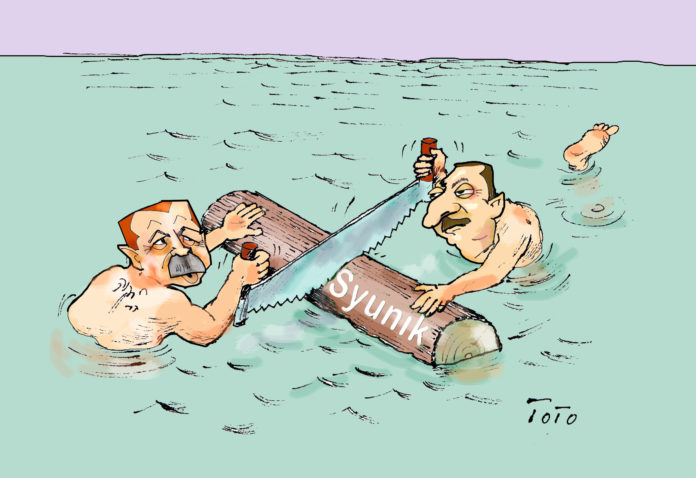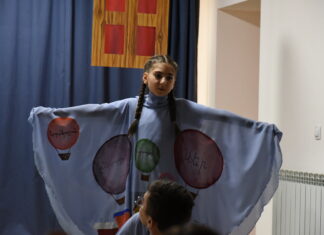The escalation of violence along Armenia’s borders continues. The incursions began on May 12 by Azerbaijani forces in the Syunik region, where around 1,000 soldiers surrounded Sev Lake and they still remain there in violation of Armenia’s sovereignty. Protests from the Armenian side did not help the situation; on the contrary, they even encouraged Azerbaijani dictator Ilham Aliyev to commit further violations by resorting to violent clashes in the Gegharkunik region.
More recently, hostilities have moved closer to Yerevan, to Yeraskh, resulting in Armenian casualties and the shooting down of an Azerbaijani drone.
Behind the scenes of this military confrontation, a political tug-of-war is taking place between Azerbaijan and the international community; the latter is represented by the Organization for Security and Cooperation in Europe (OSCE) Minsk Group. The Minsk Group still maintains that there is unfinished business in Karabakh, meaning the final settlement of Karabakh’s political and legal status, countering Aliyev’s claim that he has settled the conflict by force and that no questions remain regarding the status.
President Aliyev’s demand from Armenia to sign a lopsided peace treaty, whereby Armenia is requested to renounce any claim on Karabakh, intends to preempt the OSCE’s efforts to settle the conflict on the basis of the principles it has advanced all along. Once Armenia gives in to Aliyev’s demands, the OSCE’s contention of arriving at a peaceful solution will be undermined.
The Minsk Group co-chairs had issued a statement on April 13 calling for the parties to resume negotiations but no action was taken. They issued another call for action on July 29, which was welcomed by Armenia’s Foreign Ministry. The statement this time calls on the parties to deescalate the situation and refrain from incendiary rhetoric and actions and fully comply with their obligations under the November 9 ceasefire agreement.
If negotiations are resumed, this time around, the OSCE will have to entertain an entire slew of new agenda items which the Azerbaijani side has accumulated through its actions. Indeed, the issue of Karabakh will come at the very end of that agenda, because Baku has aggravated the situation by refusing to release Armenian prisoners of war, staging sham trials of those prisoners, killing almost 60 Armenian soldiers since the beginning of the ceasefire and laying claim to the sovereign territory of Armenia.








